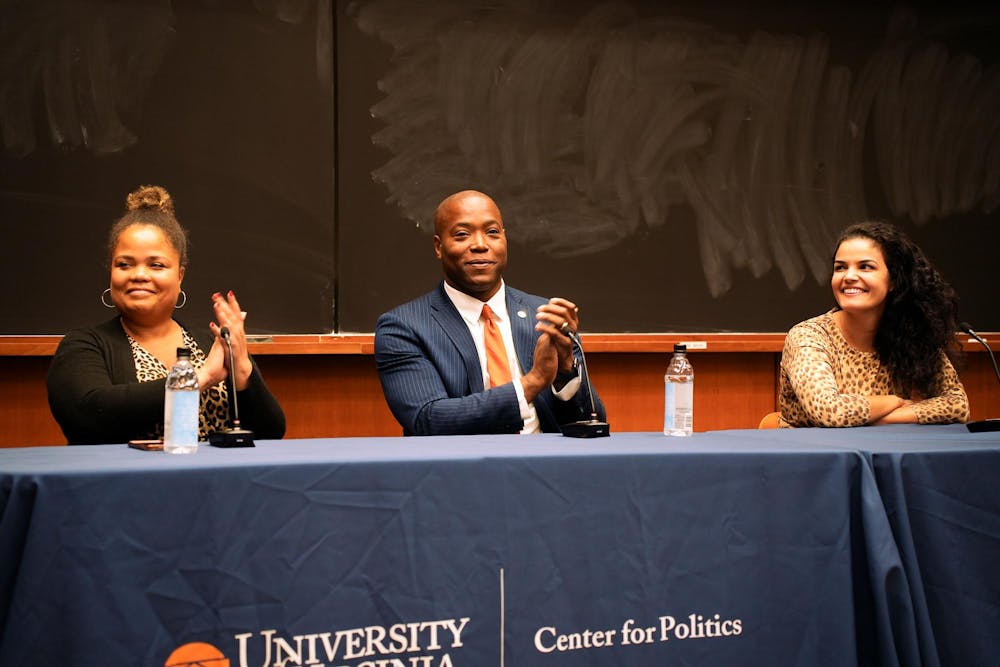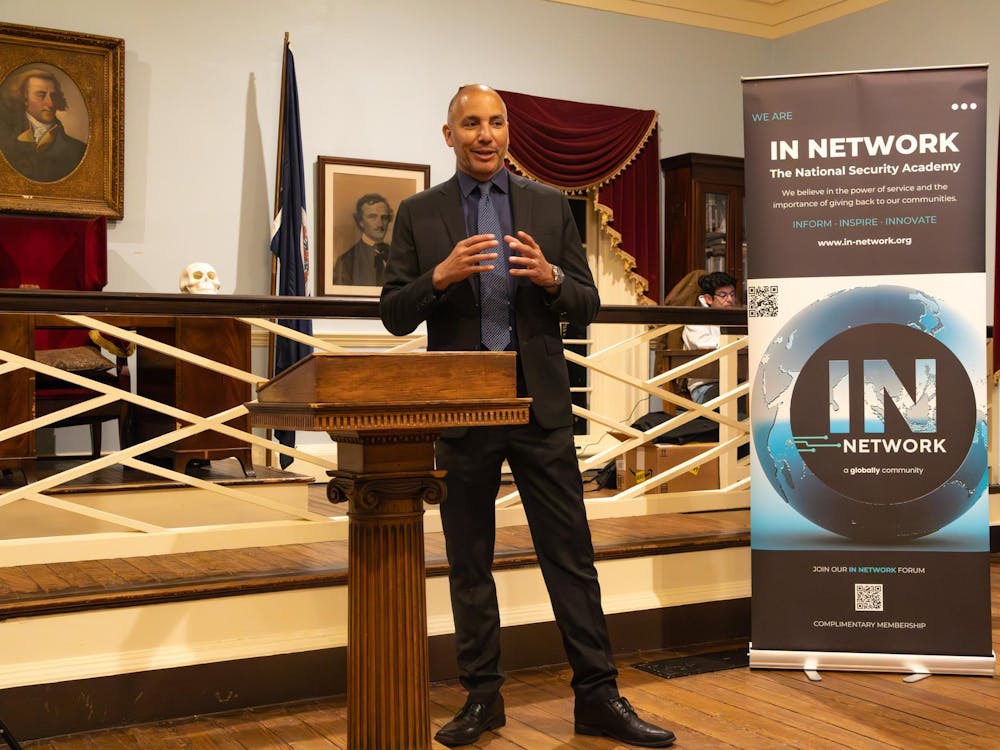At a Wednesday panel hosted by U.Va.’s Center for Politics, Alpha Phi Alpha fraternity, Alpha Kappa Alpha sorority and Students for Equity and Reform in Virginia, three Democratic politicians, all of minority backgrounds, discussed key issues facing Charlottesville and the Commonwealth of Virginia.
The event, titled “The Power of Your Vote,” was organized with the intention of encouraging greater political participation among African American and minority students at the University, and the panelists, State Senator Aaron Rouse (D-Virginia Beach) and State Delegates Katrina Callsen (D-Charlottesville) and Rae Cousins (D-Richmond), covered topics including affordable housing, reproductive rights, gun violence and political partisanship.
Third-year College student Gregory Perryman moderated the event and introduced the three state legislators. During his introduction, Perryman thanked the legislators for being a part of the panel and for speaking to students directly.
The legislators each gave a brief personal backstory to kickoff the event, starting with Callsen, a lawyer who grew up in Charlottesville and attended Yale University and the University School of Law before winning a seat in the Virginia House of Delegates.
Rouse then shared how he earned a scholarship to Virginia Tech, got drafted into the NFL and served on the Virginia Beach City Council before being elected a state senator in 2023. He is now running for lieutenant governor of Virginia.
Cousins, a lawyer in Richmond, spent much of her early adult life working in politics, particularly with her local Democratic party committee and on former president Barack Obama’s presidential campaigns. She was later elected to the House of Delegates when a new Richmond area seat was created after redistricting in 2020.
After the legislators finished introductions, Perryman then went on to ask a series of questions to the panel. He first asked the legislators about the steps they are taking to address the lack of affordable housing in the Commonwealth.
Callsen said that a lack of affordable housing in Virginia is extremely serious, and that in Virginia, landlords and property owners often have more legal rights and protections than tenants do, making it difficult to make housing widely available. She also said that the state legislature has been unable to enact many of her and her colleague’s housing solutions — including making it more difficult for landlords to evict tenants and obligating landlords to fix maintenance issues in a timely manner — due to Gov. Glenn Youngkin’s veto.
“Virginia also has funding mechanisms that we could be using more of. We have an affordable housing trust fund that the state is funding, but not at the levels, I think, that we need to see to make housing affordable,” Cousins said. “We also passed a ton of housing bills, but the governor, who's a Republican, had the power to veto those, and so vetoed most of them.”
Rouse and Cousins agreed with the dire housing situation described by Callsen and both went on to discuss the difficulty of enacting housing solutions without a Democratic trifecta in Richmond.
Rouse said that the Virginia State legislature is not always effective, but is much more friendly and cordial than people think, which Callsen agreed with. Despite the fact that Democrats hold majorities in both chambers of the state legislature, there exists a great sense of bipartisanship.
After the lawmakers’ comments on affordable housing, the issues of low minority voter turnout and abortion access became the main focus throughout the rest of the event.
Rouse, Callsen and Cousins all expressed their support for a woman’s right to choose and discussed their efforts to enshrine those rights in the Virginia state constitution. The Supreme Court overturned Roe v. Wade in 2022, making abortion an issue for state legislatures, and while abortion is currently accessible in Virginia, a constitutional amendment protecting that access will not be able to be voted on until 2026.
Callsen said that because of that, it is important for voters to stay involved even after the 2024 elections.
“It’s just as important to show up and vote in 2026 as [it is in 2024 and 2025],” Callsen said. “All of our constitutional amendments have to pass the House and the State Senate twice, and then there has to be a referendum.”
All three legislators said that it is just as important for people to vote in local and state elections as it is to vote in presidential and congressional ones. And Rouse also said that greater minority participation in politics is key to addressing issues like granting voting rights to felons and protecting abortion access.
After the discussion on protecting abortion access and encouraging minority participation in voting, the legislators took questions from the audience. Several students asked questions to the panel covering a variety of topics including their motivations for entering politics and their views on increased political partisanship.
In response to one of the questions, Rouse said that visiting his father in prison growing up motivated him to prove himself, find success and give back to others.
“Those who grow up with parents who may be incarcerated don't have to follow in your parents footsteps,” Rouse said. “You are you. You know you're not like them. Society will make you believe that, but you have your own life to live. And I want to serve as a guide to the next generation, regardless of background.”
The deadline to register to vote in Virginia is Tuesday. Those who do not register by that date will still be able to register on election day Nov. 5, with early voting ending Nov. 2.







